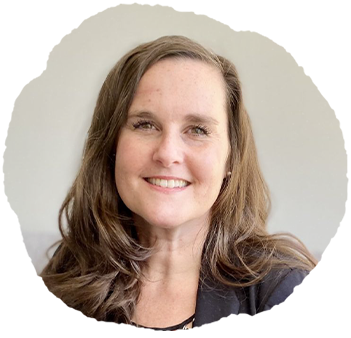Counselling for Men
Our counsellors understand the unique perspective of men and the challenges of fatherhood.
At Illuminate Counselling, we work with clients dealing with a variety of challenges, including anxiety, stress, depression, relationship struggles, anger management, grief and loss, and generally navigating hard times in life. Many of our male-identifying clients come in with very specific struggles and many have not gone to counselling before.
Whatever your reason for wanting support, together with your therapist, you can learn to take control over the sources of these symptoms and gain clarity about your next steps.
New to Counselling?
You are in the right place.
Our team understands the courage it can take to reach out to a counsellor, so we make it our mission to make you feel as comfortable as possible. Choose from either in-person counselling (North Vancouver), video, or telephone sessions, and find a time that works with your schedule.
Have questions about the process? We recommend reading Frequently Asked Questions about Counselling.
Sound familiar?
“I can’t turn my mind off, it’s keeping me up at night.”
“I thought I was having a heart attack, but the doctor told me it was an anxiety attack.”
“I’m about to become a dad and it’s finally hitting me that I have no idea what I’m doing.”
“I’ve got to figure out how to make some changes, or my marriage is over.”
“My relationship just ended and I have no idea what to do next.”
“My wife says that I have trouble sharing my emotions and I need to go talk to a professional.”
“I’ve never gone to counselling but I can’t go on feeling this way.”
Counselling can help you to:
Our clients often describe reaching a ‘breaking point’ that has led them to therapy, sometimes not knowing where else to turn during a crisis.

Identify where your symptoms are coming from.
There is power in understanding more about what is contributing to how your are feeling. If you have noticed more anxiety, panic, irritability, or low mood lately, we want to help you learn why.
Understand your emotions better so that you can gain some control.
Becoming more aware of your emotions can empower you to take control of your life. Many men in particular have learned to push down or tune out their emotions as a way of coping. Counselling can help you learn emotional management.
Learn new ways of coping with anxiety, depression, anger, etc.
We’ll examine what you’re already doing to support yourself. We’ll also explore new tools to add to your coping toolbox. This will help you to co-exist with your emotions rather than feeling overwhelmed by them.
Gain skills to improve your relationship or marriage.
Most of us were not taught relational skills growing up. No wonder that so many people struggle in their relationships! Therapy can help you to transform your relationship, starting with improved understanding of the problems themselves.
Have a confidential place to vent & talk out your problems.
Many issues that bring people to counselling are a long time in the making. So by the time you get to a counsellor’s office, you may really need to get some things off of your chest first. From there, you can start sorting through what’s in front of you.
Hear new perspectives about what's going on for you.
We are all limited by our unique way of seeing the world and how we interpret life events. Therapy can help offer new ideas, perspectives, or ways of understanding your situation. This openness can give you more options in how you respond.
Counselling for Dads
+ soon-to-be Dads
Our counselling clinic has always focused on Maternal Mental Health and supporting mothers. But we know that Dads suffer too, often in silence. Men have unique mental health concerns that require a different approach. Our therapists get this and we love working with dads.
Fortunately, more and more men are finding their way to therapy and seeing the benefits of this in their lives!
Common struggles shared by our ‘dad’ clients:
“I’m about to become a dad and it’s finally hitting me that I have no idea what I’m doing.”
“I am so exhausted but feel that it’s my job to hold it all together… it’s a lot of pressure.”
“My wife is really struggling postpartum, and I don’t how to help.”
“I don’t know what I’m doing with our baby.”
“I feel incompetent.”
“I have a short fuse with my family… I worry that I’m turning into my own father.”
“I’m always disappointing someone, either at work or at home.”

Statistics about Paternal Depression
-
When a mother is depressed, 50% of fathers experience clinical depression*
-
1 in 10 men experience clinical depression in the transition to parenthood**
🌟 This number represents only those who REPORT it, and many men will not recognize the depression or stigma will prevent them from reaching out for help
🌟 It also does not include all of the men who are having some symptoms but they are NOT SEVERE ENOUGH to meet the diagnostic criteria
🌟Also, few men are actually screened for postpartum mental health
*(Paulson & Bazemore, 2010)
**(Paulson, 2016)
Ready to get started?
Or book your appointment online
Depression in Men
As a generalization, depression can look different in men!
Terry Real, a renowned therapist in men’s relational issues, talks about how men are often ashamed to be depressed, so they hide it (consciously or subconsciously).
As a result, many men who come to see us may not say “I feel depressed”, but rather complain of other challenges. This is what we call COVERT or MASKED depression; essentially you see the defenses AGAINST the depression, rather than the depression itself, such as with:
-
-
-
Checking out / distancing from their loved ones
-
Isolation
-
Irritability
-
Distraction (phone overuse, gaming)
-
Alcohol and/or drug overuse
-
Overworking
-
Escaping the issue with things like over-exercising
-
Anger that leads to yelling
-
Violence / abusive behaviours
-
-
Why New Dads' Mental Health May Suffer
- With new fathers in particular, there are many possible contributing factors to feeling depressed or anxious including:
✔️ Feeling burdened or trapped
✔️ The pressure of financial responsibility ✔️ Identity & role confusion
✔️ Feeling less cared for by partner (baby becomes #1)
✔️ Sleep deprivation
✔️ Poor social connections & community support
✔️ Maternal depression (their partners are struggling)
Learn more in our article: Depression in New Dads.

Ready to Get Started?
We have counsellors that can help you work through your life challenges. If you’re not sure who the right counsellor for you is, we’ll be happy to match you with someone on our team that’s the right fit, or make a recommendation for a trusted colleague in your community.
Our Specialized Counsellors

Saba Hessamian

Alexandra Stewart

Jennifer Wright

